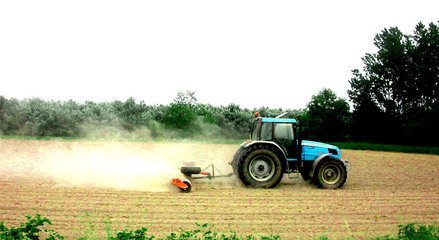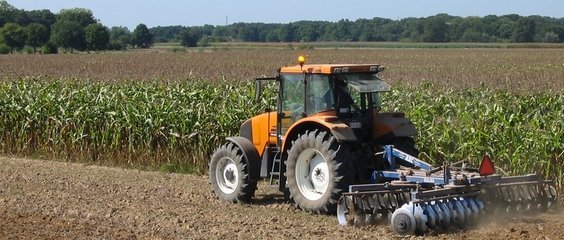
Traditionally, farmers are known to be healthier individuals when compared to other societal groups, including those who work in an office environment during the working week. The reasons for this, according to several studies, can be attributed to more active lifestyles, as well as better diets, with less processed and refined foods and sugars.

With that said, there are also other studies and arguments that indicate that farmers actually face several and significant health issues and risks at work. In fact, some even argue that it is one of, if not the most, dangerous professions. Firstly, farmers work long and gruelling hours, often getting up before or at the rise of the sun, and finishing later in the evening. These extended hours alone can be risky for a few reasons, including:

- Lack of sleep
- Sun exposure
- Exhaustion
- Dehydration
Also, the work itself is physically demanding, putting a strain on various parts of the body, including muscle groups and joints, etc. The physically demanding job can also have an impact on stress and energy levels as well. Another health risk includes the exposure to chemicals and hazardous materials, as well as dust and other elements, which can severely impact and have detrimental effects on the respiratory and cardiovascular system.
In addition to all of the points above, it has recently become more discussed and prominent, that the lifestyles, stress and other working conditions of this industry, can have an impact on farmer’s, and those in the agricultural sector’s, mental health.
If none of these health issues or risks is addressed, prevented or mitigated, it can be detrimental to long-term health, and in some cases, fatal for farmers. Often, dealing with the health of farmers can be difficult due to their rural locations, which can make it hard actually to get to the doctor’s office. Also, access to insurance and resources can prevent or act as a barrier to farmers and rural populations seeking medical help.

Technology is helping provide those in the agriculture industry better access to healthcare. For example, https://www.livi.co.uk makes it easy to access a GP or healthcare professional in an instant, without leaving home. This means that farmers can access the wisdom and guidance of a doctor, without having to leave their work or livelihood, and are able to receive advice, diagnosis, referrals and in some cases, even prescriptions. This means that farmers that may otherwise not be able to address and manage both their physical and mental health can receive help. Also, access to online resources helps with the knowledge component of healthcare, which is extremely important in prevention and proactivity. Overall, technology is making it easier for farmers and their families to create a balance between health and work, and not having to sacrifice either one.
